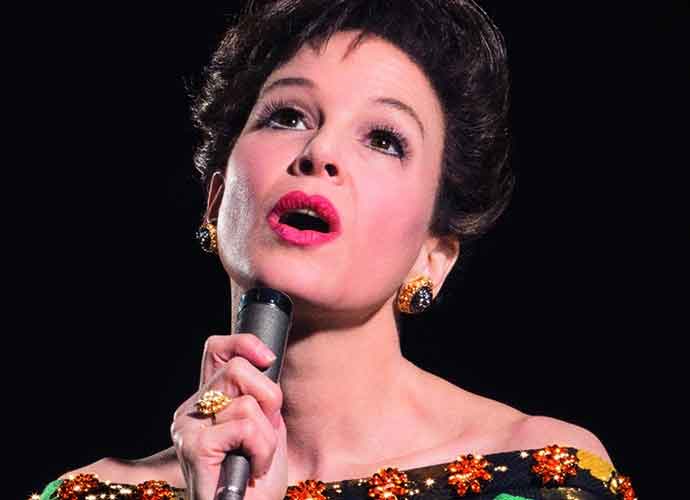‘Judy’ Blu-Ray Review: Judy Garland’s Tragic Story Brought To Life

3.5/5
Rarely has the film industry cast such a critical eye on itself as it has in Judy. At turns inspiring and heartbreaking, the latest effort from British director Rupert Goold shows the long-lasting harm the star machine can do to an individual by focusing on one particularly notable case: Judy Garland.
Renée Zellweger stars as the legendary actress whose final days are the movie’s main focus. Having lost much of her star power stateside to addiction and erratic behavior, Garland is forced to perform a stint of shows in London in order to secure the money she needs to take custody of her children. Judy follows this run of concerts, some of Garland’s last, and uses them to reflect the twists and turns her life took to get there.
The film opens in California, showcasing the nearly-homeless Garland’s spotty attempts to make money through singing before traveling to England where her reputation remains untarnished. What might normally seem like a simple international stopover is, for Garland, a last chance at success and motherhood.
Zellweger sells the role immaculately, capturing the star’s charms and affability without undercutting the inherent tragedy to Garland’s story. The role has Garland go from loving, intimate moments with her kids to drunken breakdowns onstage with plenty of stops in between, and Zellweger sells each version of Judy with remarkable poise. She carries enough continuity between the good moments and the bad to remind the audience that we are, in fact, watching just one person — someone with just as many highs as lows.
The movie, however, is not just Zellweger’s alone. Flashbacks feature the admirable Darci Shaw as a young Garland during her early days on set. These moments are included to demonstrate the origin of Garland’s fracture state, showcasing the strict regulations that Richard Cordery‘s Louis B. Mayer placed on her eating and the troublesome regimen of drugs her prescribed to her. It’s a classic “tragic backstory” executed with just enough subtlety and heart to steer it clear of any major clichés.
The rest of the movie, however, follows an arc that will be quite familiar to any regular moviegoer. The woefully underused Jessie Buckley does her best as Rosalyn Wilder, Garland’s handler, but the role is too flat and has too little interplay with Zellweger’s Garland to be entirely memorable. Rising star Finn Wittrock does his best as Mickey Deans, Garland’s final husband, but his character functions as little more than a representation of how Garland was constantly overlooked and overused by those around her.
Some scenes, particularly Garland’s television interview, are strikingly well-written, but Tom Edge‘s script plays it remarkably safe with many elements of Garland’s radically powerful story. A ham-fisted attempt to showcase Garland’s icon status in the gay community comes across as forced, and the film’s milquetoast finale feels strangely underwritten and reductive given the complexity of the character shown in the previous 110 minutes. Many of the film’s faults, however, can be overlooked in the face of Zellweger’s true barnstormer of a performance — rarely does an actor work so hard to make up for a script’s failings.
The disc’s special features are limited to a short documentary entitled “From the Heart: The Making of Judy” which gives a bit of insight into how the film came to be. It’s hardly an exposé but will be an interesting watch for anyone looking to get a deeper look at the process of Judy‘s production.
RELATED ARTICLES
Get the most-revealing celebrity conversations with the uInterview podcast!







Leave a comment